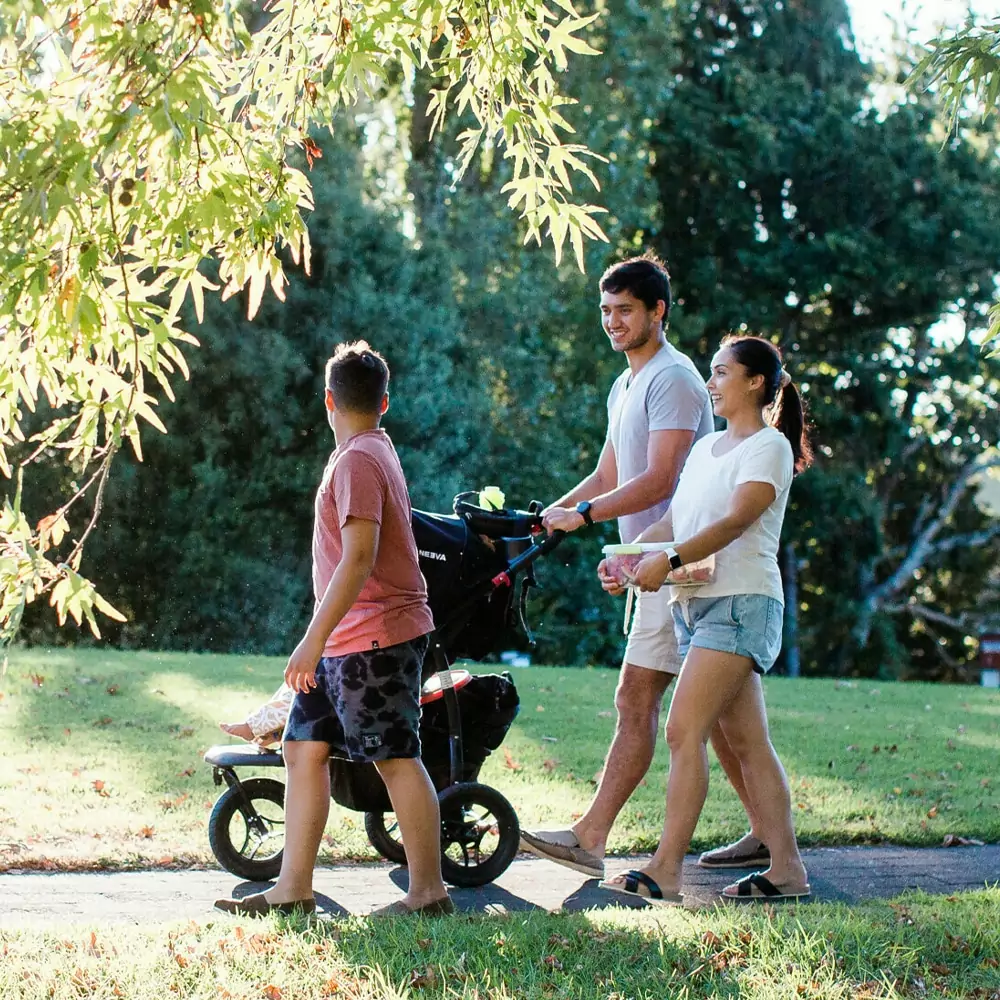What is wellbeing?

Published:
August 31, 2023
Article type:
Keywords:
Finding a definition for wellbeing and how to maintain it in our lives
Wellbeing is a term that is used so much, and in so many different places, it can be hard to know exactly what it means.
Applied at a ‘big picture’ level, wellbeing is used to measure how society is progressing. We look at our social, cultural, economic and environmental wellbeing to understand the current situation for our population, and make decisions about how we can all live well now and in the future.
On a smaller but no less important scale, personal wellbeing is about living a good life, one where you feel satisfied, strong and fulfilled, with the ability to face life’s challenges.
Te Whare Tapa Whā – the Māori model of wellbeing
Te Whare Tapa Whāis the holisitic Māori model for thinking about health and wellbeing, introduced by Sir Mason Durie in 1982. It’s a helpful way to look at all aspects of wellbeing.
Te Whare Tapa Whā describes the four walls a whare must have to hold up the roof and keep it strong. Each wall represents one of the four dimensions of health and wellbeing:
- Taha tinana – physical health
- Taha wairua – spiritual health
- Taha whānau – family and community health
- Taha hinengaro – mental and emotional health.
All four walls are equally important for overall wellbeing. If one is missing or in some way unstable, a person or a community may become ‘unbalanced’ and unwell.
In this way, we can see how wellbeing involves how we’re feeling, thinking and functioning across multiple areas of our life. It includes tangible things like physical health, environmental factors and economic stability, alongside more subjective elements – feelings of belonging, connection, comfort, and emotional safety.
Maintaining wellbeing
Wellbeing isn’t about achieving a constant state of bliss. It’s an ongoing journey, something we need to work on and maintain over the long term.
Often it’s the small things we do each day that can make the biggest difference. Some everyday strategies and actions to help support wellbeing include:
Exercise: Any exercise is better for our health than none. Up to 30 minutes of moderate heart-pumping exercise, five times a week, is recommended. This includes activities like aerobics, brisk walking, jogging and swimming.
Good nutrition: Eating healthy food is important for wellbeing. Guidelines recommend a variety of nutritious foods each day. This is particularly important during times of stress.
Mindful rest: It is important to pause now and then from the busyness of life. Check out how you are doing and how much stress you are under. Allow yourself to switch off and spend time caring for yourself, both mentally and physically.
Adequate sleep: The length, timing and quality of sleep are important for health, performance and safety. Try to get the recommended hours of sleep, with a couple of hours of these before midnight to support the body’s natural rhythm. Taking a break from technology before going to bed improves sleep.
Five Ways to Wellbeing
Research from the Foresight Commission in the UK shows there are five simple things people can do to improve wellbeing.
These simple actions are internationally recognised and known as The Five Ways to Wellbeing. They have been adapted by the Mental Health Foundation to relate to a New Zealand context. Many people find them useful, and there are some good resources on the Mental Health Foundation website.
Connect: Talk and listen, be there, feel connected.
Give: You time, your words, your presence.
Take notice: Remember the simple things that give you joy.
Keep learning: Embrace new experiences, see opportunities, surprise yourself.
Be active: Do what you can, enjoy what you do, move your mood.
Ultimately, wellbeing looks different for everyone because what fulfills each person is unique. Being aware of what contributes to our overall wellbeing, and how to maintain it, means we can find a balance between growth and self-care, looking after the things that help us live well.
Learn more with Stress, Resilience & Wellbeing
Blueprint for Learning’s Stress, Resilience & Wellbeing workshop can help you find ways to deal with life’s challenges, with the skills to build resilience, support mental health and maintain wellbeing.



